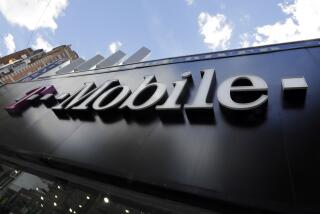Deregulation Lets Consumers Pick Phone Services They Want
- Share via
As pointed out in The Times in a Sept. 11 (Part I, Page 1) article on telephone deregulation, virtually all telephone-related services are being unbundled. Consumers should welcome this.
For those of us who want a lot of what the new age has to offer, we will eventually be able to purchase--and pay for--those services we want.
For instance, I don’t like “call waiting” or “call forwarding,” but a great many consumers evidently do. On the other hand, I do like tone dialing, and I am happy to pay extra for the convenience. Since I rarely ask for directory assistance, it’s a relief to know that I’m not financing businesses that make regular use of this service.
Consumers have an equal interest in the deregulated unbundling of most other charges, including long-distance services and even inside wiring. I live in a small house with only a single telephone, and I don’t want to have to pay for the wiring of a mansion.
Just as I wouldn’t think of allowing a regulator to decide what groceries I will buy at the supermarket each week--forcing all of us to conform to what a government agency thinks is best for our stomachs--so we should welcome the kind of deregulation that allows telephone companies and others to offer a smorgasbord of services and equipment.
Moreover, unless the telephone industry is free to market new telecommunications products and charge what consumers are willing to pay, the new products will not appear.
To make this new “telephone service supermarket” work, our phone companies and their regulators have obligations to us as consumers. We need good information. We need total freedom from deception. We need real choices that are not muddied by gimmicks such as lifetime contracts and pyramid or Ponzi-type schemes.
Most importantly, we need to retain our freedom to altogether reject an option or to “switch brands” at any time without penalty.
Consumers also need protection on the cost of the “core” services--in effect, the cost of entering the supermarket. Now, the phone companies still charge us when we enter their supermarket--the basic monthly charge. While this too might remain an unbundled service, those who want to enter virtually free can do so through the local measured service option, or if a household cannot afford that, then the extremely low-cost “lifeline” option.
In the future, it’s possible that the phone companies will let all of us enter free, and be charged for only the services we use.
RICHARD A. ELBRECHT
Sacramento






